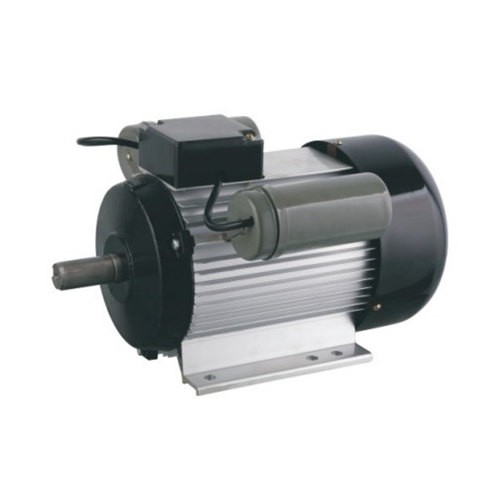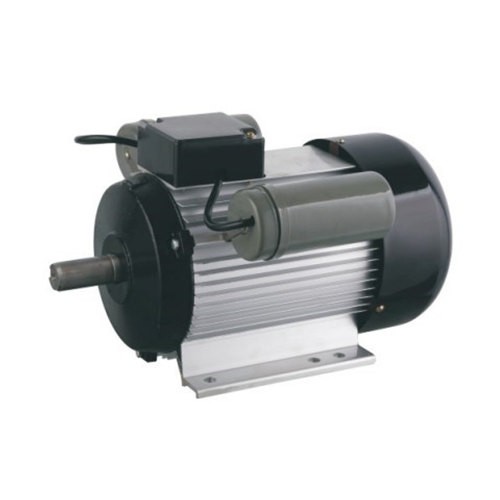Hey there! As a supplier of motors for air compressors, I often get asked about the mechanical properties of these motors. So, I thought I'd take some time to break it down for you all.
Let's start with the basics. An air compressor motor is the heart of the air compressor system. It's responsible for converting electrical energy into mechanical energy, which then powers the compressor pump to compress air. There are different types of motors used in air compressors, like Three Phase Motor for Screw Air Compressor, Single Phase Motor for Air Compressor, and Electric Motor for Air Compressor. Each type has its own set of mechanical properties that make it suitable for specific applications.
Power and Torque
Power is one of the most important mechanical properties of an air compressor motor. It's measured in horsepower (HP) or kilowatts (kW) and indicates how much work the motor can do. The power rating of a motor determines the size and capacity of the air compressor it can drive. A higher power motor can handle larger compressors and produce more compressed air.
Torque, on the other hand, is the rotational force that the motor can generate. It's crucial for starting the compressor and overcoming the initial resistance. Motors with high torque can start the compressor quickly and smoothly, even under heavy loads. When choosing a motor for an air compressor, you need to consider both power and torque requirements. For example, a screw air compressor may require a motor with high torque to start the rotor, while a small reciprocating compressor may need a motor with just enough power to keep it running.
Speed
The speed of an air compressor motor is usually measured in revolutions per minute (RPM). Different types of compressors require different motor speeds. For instance, a reciprocating compressor may operate at a lower speed, while a centrifugal compressor may need a high - speed motor. The motor speed affects the efficiency and performance of the air compressor. A motor running at the right speed can ensure that the compressor operates at its optimal level, producing the right amount of compressed air with minimal energy consumption.
Efficiency
Efficiency is another key mechanical property. An efficient motor can convert a higher percentage of electrical energy into mechanical energy, which means less energy is wasted as heat. This not only saves on electricity costs but also reduces the wear and tear on the motor. High - efficiency motors are designed with advanced materials and better winding techniques. They often have a higher initial cost but can result in significant savings over the long term. As a supplier, I always recommend customers to consider the efficiency rating of the motor when making a purchase.
Durability and Reliability
When it comes to air compressor motors, durability and reliability are non - negotiable. These motors are often used in industrial settings where they may run continuously for long periods. They need to be able to withstand harsh conditions, such as high temperatures, dust, and vibrations. A durable motor is built with high - quality materials and components. It has a robust frame and good insulation to protect the windings from damage. Reliability means that the motor is less likely to break down, which reduces downtime and maintenance costs.
Cooling
Proper cooling is essential for the mechanical performance of an air compressor motor. As the motor operates, it generates heat. If this heat is not dissipated effectively, it can cause the motor to overheat, which may lead to insulation breakdown and reduced motor life. There are different cooling methods, such as natural convection, forced air cooling, and liquid cooling. Forced air cooling is the most common method, where a fan is used to blow air over the motor to remove heat. Liquid cooling is more efficient but also more complex and expensive.


Noise and Vibration
Noise and vibration are also important considerations. A noisy motor can be a nuisance in a workplace, and excessive vibration can damage the motor and other components of the air compressor system. Motors are designed with features to reduce noise and vibration. For example, they may have balanced rotors and vibration - dampening mounts. When choosing a motor, it's a good idea to look for models that are known for their quiet operation and low vibration levels.
Starting and Stopping
The starting and stopping mechanisms of an air compressor motor are crucial for its proper functioning. There are different types of starting methods, such as direct - on - line (DOL) starting, star - delta starting, and soft - start. DOL starting is the simplest and most common method, but it can cause a high inrush current, which may damage the motor and the electrical system. Star - delta starting reduces the inrush current by initially connecting the motor windings in a star configuration and then switching to a delta configuration. Soft - start methods use electronic devices to gradually ramp up the voltage and current, providing a smooth start.
Compatibility
Finally, the motor needs to be compatible with the air compressor. This includes factors such as the shaft size, mounting type, and electrical requirements. A motor that is not properly matched to the compressor may not operate efficiently or may even cause damage to the compressor. As a supplier, I always work closely with my customers to ensure that they get the right motor for their specific air compressor needs.
In conclusion, understanding the mechanical properties of an air compressor motor is essential for choosing the right motor for your application. Whether you need a Three Phase Motor for Screw Air Compressor, a Single Phase Motor for Air Compressor, or an Electric Motor for Air Compressor, you need to consider factors like power, torque, speed, efficiency, durability, cooling, noise, starting methods, and compatibility.
If you're in the market for an air compressor motor, I'd love to help you find the perfect one for your needs. Just reach out, and we can have a chat about your requirements and find the best solution. Don't hesitate to contact me for more information or to start a purchase negotiation.
References
- "Electric Motors and Drives: Fundamentals, Types and Applications" by Austin Hughes and Bill Drury.
- "Compressed Air Systems: Operation, Maintenance, and Energy Conservation" by the Compressed Air and Gas Institute.





